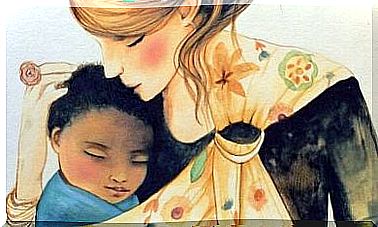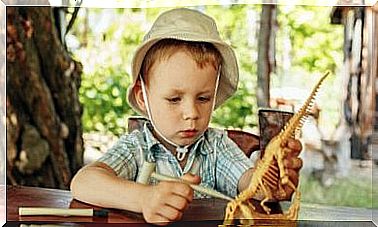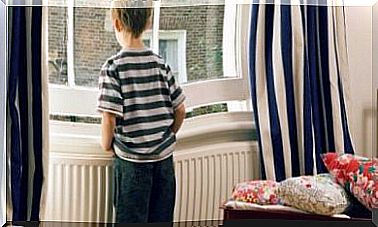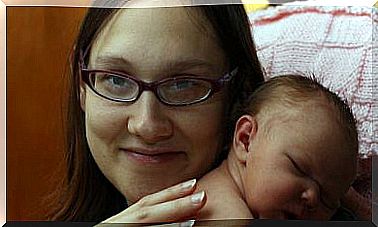When Should You See A Child Psychotherapist?
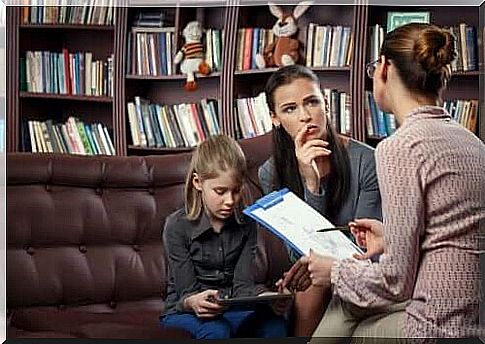
Parenting doesn’t come with instructions for use. Of course, you and your partner try to do everything as well as possible. Nonetheless, there are sure to be moments when you feel overwhelmed. Then you should ask for help. The idea of visiting a child psychotherapist still gives rise to many doubts and fears. But in many cases, seeking professional advice is the right decision.
What is normal”?
Almost all parents ask themselves at some point: Is my child’s behavior normal? And will it go over again? Or do I have to worry? Before you despair, however, it is important to know about certain things. Namely about the fact that children go through different phases in their development. Each of these comes with characteristic behaviors. These help the little ones to develop as people.
For example, around the age of two there is a phase of negation and fits of anger. It is completely normal. It is also common for children up to the age of seven to have difficulty concentrating for long periods of time or controlling their behavior when they are excited.
That is, certain behaviors or fears can be entirely appropriate at a certain age. And they disappear when the child is a little older. On the other hand, the child’s personality also plays a decisive role. Because a more introverted child will enjoy moments in which it can be for itself more, while a more active and restless child has a greater need for external stimuli.

So, before they classify a behavior as problematic, parents should first clarify: Is this behavior perhaps only part of the developmental stage that our child goes through? Or is it part of his personality?
It is also sometimes possible that the focus of the problem is not the child but the parents. Because maybe they are too demanding, or they are overly caring and overprotective of their child and have no realistic idea of what childhood actually is.
In such cases, advice from a child psychotherapist can help. Because this allows the parents to orientate themselves and find a solution to the situation.
So when should you seek advice from a child psychotherapist?
Unfortunately, the decision to seek advice from a child psychotherapist is still somewhat taboo. Because some parents may think that this is not really necessary. Others see it as a sign of weakness.
However, seeking professional help does not in any way mean that you are a bad parent or that you did something wrong. On the contrary, it just shows that you want the best for your children, and not just in terms of education. You also want to offer them a happy and fulfilling childhood.
Of course there are situations in which it just takes a little time. Things gradually take care of themselves, so to speak. This can be the case when a change occurs in the child’s life. Such as B. in the event of a divorce or a change of school. Then it usually just takes some time for the child to get used to the new situation. Nevertheless, it is of course advisable to pay close attention to whether this familiarization actually takes place smoothly.
As parents, you can also consult a child psychotherapist in such cases if you think it is necessary. Because it can possibly help the child to cope better with this critical phase. As the saying goes: it is better to be safe than sorry. And sometimes it’s better to just prevent. A visit to the child psychotherapist can prevent certain occurrences in the child’s environment from negatively influencing the child or even causing them to feel overwhelmed.
On the other hand, it is clear that there are also situations in which you as parents should act as quickly as possible. Otherwise the symptoms could get worse. Or become chronic. Furthermore, unless a solution is found, the child will lose part of his childhood.
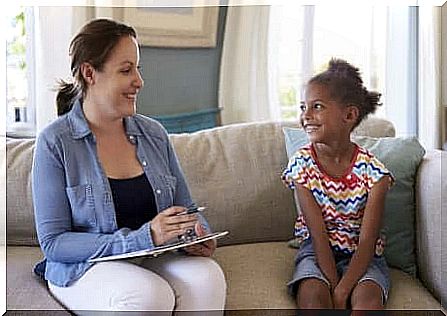
What should parents pay attention to?
As parents, you have to make a decision: should we go to the child psychotherapist or not? Then there are the following things that you should pay special attention to with your child:
- Behaviors that fall outside the “normal” framework. Either because your child behaves very differently from the rest of their peers or because their behavior changes radically from one day to the next. For this reason, it is important to have a good understanding of both the various stages of development and the personality of the child.
- How long does the problematic behavior last? Does the child have unusual behavior or a strange mood that lasts for several months? Parents should then consider seeking professional help. This can be an indication that the child is unable to cope with the situation on their own and that they need help.
- Influence on everyday life and well-being. If a behavior or emotional state has a significant impact on the child’s daily life and well-being, parents should seek advice from a child psychotherapist. This also applies if not much time has passed. If the adverse effects are too great, you shouldn’t wait.
- Inexplicable physical symptoms. If the child has frequent headaches, stomach pains, or skin problems without any medical report, they may experience a somatization of emotional problems.

